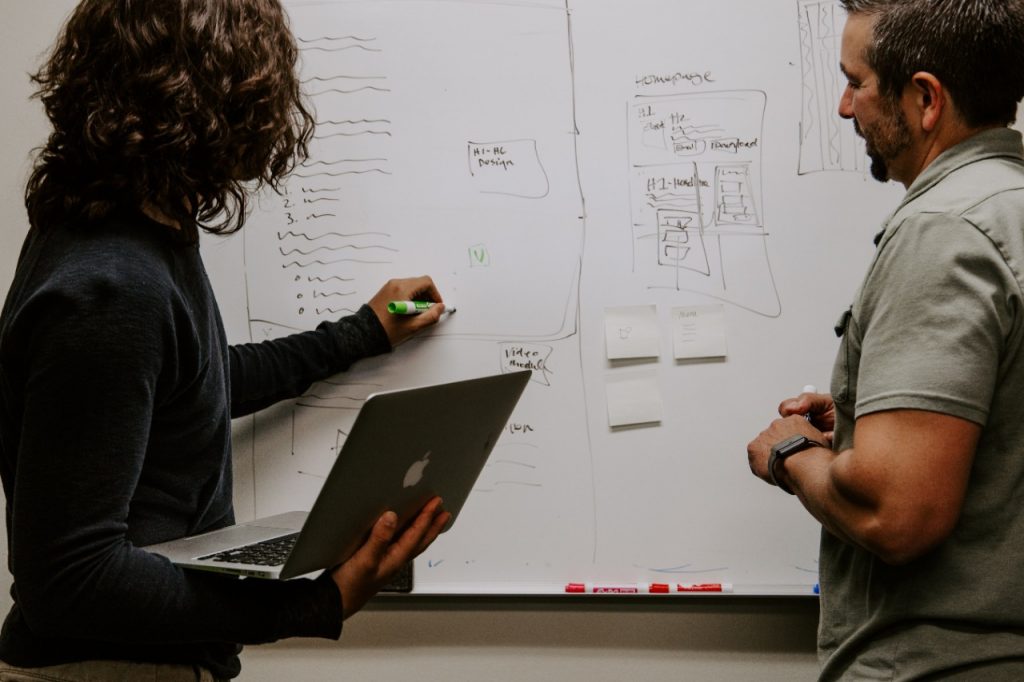One of the things that I dislike about corporate culture is the many different terms that get thrown around to describe a logical and an otherwise common-sense action. Many managers and companies like to create new terms and abbreviations for actions and rules they have incorporated. However, the thing is, the more popular terms like ‘critical thinking’ are still around for a reason – they work.
The word ‘critical’ might have a negative connotation, and you might wonder – “What is the point of thinking negatively?” But where ‘critical thinking’ actually helps is in understanding all the flaws in an argument or a decision, counter or correct the process, and finally arrive at the stated objective.

Critical Thinking is: Independent Thinking + Information Analysis = Arriving at a Judgement
What do critical thinkers do?
They think, they question, they do not accept everything at face value, using their ability to reason and to solve problems through logical reasoning. This is why most employers would be keen to employ critical thinkers because they are the catalyst that will propel the company forward.
So, what can you do to become a more critical thinker?

- Asking questions – Don’t be afraid to question everything, don’t take anything at face value. Ask:
- What are you trying to achieve?
- How have you arrived at this conclusion or decision?
- How would I know what you have told me is accurate? Show me the proof and explain it to me.
- What might you have missed out or overlooked?
- Assumption is the mother of all screw-ups – One of my majors during graduation was physics, and one of the things I disliked was the proof of every theory started with “Assume…..”, which is why we used the headline of this point as our motto during physics class. But leaving our childish assumptions aside (because who are we to question some of the greatest scientific minds ever), in our mundane lives assuming things will just make an ass out of you and me (ass-u-me). So, question all assumptions.
- Self-reflecting – Critical thinkers must be able to reflect on themselves. Ask yourself if your beliefs are based on logic or emotions. Don’t be afraid to take a step back and analyse your decisions or belief, recognising if you have any bias and if it played a role in your decision-making process.
- Listening – When you discuss something with someone, don’t get ahead of yourself and start thinking, but listen to their point of view. Only once you hear and understand their point of view can you have enough data to analyse and evaluate, and offer alternatives if required.
- Understanding the motive – Understanding the motives behind the source of the data you are basing your decisions on is essential because the data will always be skewed towards the source’s beliefs. For example, in the US media, the same story on President Donald Trump or President Joseph Biden will be covered in a completely different way by Fox News and CNN. That is why you have to question what you are being told.
- Researching – Today, we are blessed with endless sources of information, and all of them easily accessible. Do your research taking advantage of all these sources of information and use your critical thinking to arrive at the best decision possible.
- Keep an opened mind – So, you looked at data from multiple sources, applied critical thinking, and arrived at a conclusion. But still, going into a discussion with the assumption that you are right is wrong. As mentioned in point number four, if you assume you are right and are not listening, you will fall into point number two.
Learning to develop your critical thinking skills will go a long way in helping you analyse data and arrive at the best decision possible more often than not. Comment below if you know any other way in which we can develop critical thinking skills, we would love to hear from you!

Our online master’s degree management programmes help you become a better leader, and master’s degrees, in general, will help you in developing your critical thinking skill. Chat LIVE on WhatsApp with one of our education advisors for more information on all the programmes we offer, the application process, and information on discounts we might offer.

I really love the blog on critical thinking, I really do believe the point you make at number 2, often we do critics based on the assumption not realising we are not making sense without supporting information. making an ass of ourselves is a reality that many of us do, unfortunately.
Hi Selma,
Thank you for your comment and for following our blog, hope you will continue to find our blogs informative.
Regards,
Sahil
Sahil thank you for writing about a very important piece- critical thinking. This is a very important topic most especially in these current times. Critical thinking has played a big role in my life and I am applying it more and more to my conversations and decisions. Believe me, it has made me understand my work colleagues more, my friends and family too. Thank you for this great piece!
Hi Nuru,
Thank you for your comment, much appreciated. I am happy that you find our blogs beneficial and hope you continue to benefit from our blogs.
Sahil
Sahil thank for this essential orientation about critical thinking. I can also add that with all sources which are available today, true or false, we need to make effort for deep investigation. This tip is a good orientation.
Thanks
Hi Assohoun,
Thank you for your comment and observations, much appreciated.
I hope you continue to follow our blogs and derive value from them.
Sahil
Hi Sahil. This is really very great not only from professional perspectives but also; and most importantly for individual aka self-life perspectives as “critical thinking” brings insight in decision making process. I was happy to read that Employers are increasingly considering hiring critical thinkers. A point from my side is that , in some Big institutions and at a point of responsibility , you may also need to pay attention when critically thinking as the critical thinking you undertake may lead to question some corporate visions, assets, brandings, policies and procedures and if you do not address this strategically or let’s say politically correct, hierarchically empowered collages may keep you in the loop… even thought at the end of the day; your thinking is bringing bright ideas to build on to strengthen the future of the organization…
Hi Muhindo,
Thank you for sharing your observations and adding value to the blog. I hope you continue to follow our blogs and find benefit in them!
Sahil
A very useful blog Mr. Sahil,
This was the first blog I read in RKC and It brought my interest to read more.
Not a few times we regret releasing our tongs before thinking. I think by practicing those points with time they will become much easier to apply and give great results to avoid coming with a wrong decision.
Hi Marwan,
Thank you for your comment and observations. I hope you continue to follow our blogs and derive value from them.
Sahil
Pingback: محتواگردی – 8 | یادداشتهای حسین قربانی
Pingback: Is your company competitive? Here are 4 strategies to make it one! - Robert Kennedy College Blog · Robert Kennedy College Blog
In order to be a strategic thinker and produce good outcomes, in addition to high level of education and experience, it is significant important to focus on books, articles, researches reading that develop your knowledge in terms of facing new challenges. Innovation and creativity are the outcomes of well constructed knowledge.
Hi Mustafa,
Thank you for sharing your thoughts on the subject with our readers 🙂
Am interested in the programme of study advertized
Hi Martin,
Thank you for your interest in our programme. You can apply for the programme of your interest here. There is no application fee and applying doesn’t involve any commitment.
Critical thinking really makes us make the best of decisions among complex and diverse options. Would love to read more on this topic from this Column.
Hi Uwaifo,
Thank you for following our blogs and for sharing your thoughts on the subject. I am sure we will cover the topic again in the future.